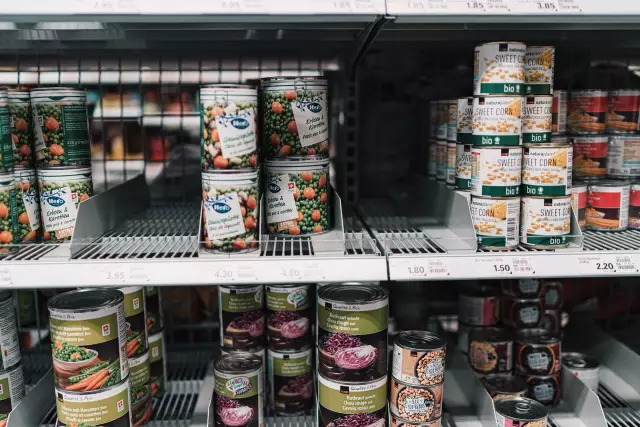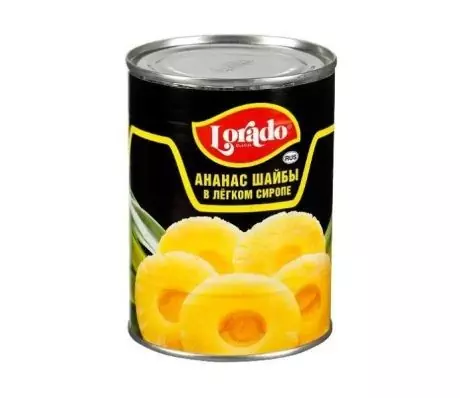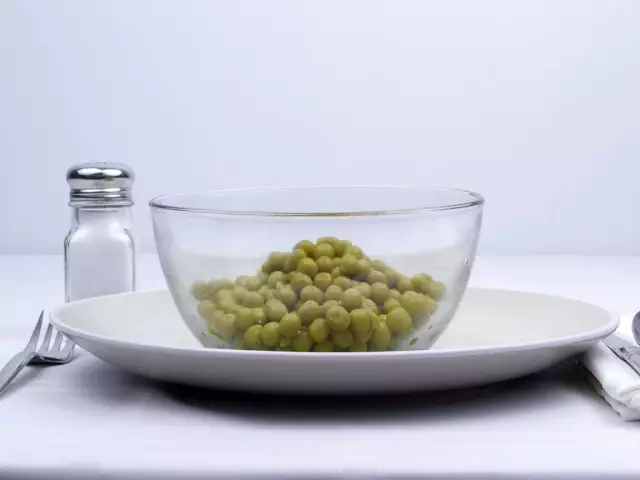- Author Rachel Wainwright wainwright@abchealthonline.com.
- Public 2023-12-15 07:39.
- Last modified 2025-11-02 20:14.
Canned food - good or bad?

Translated from Latin, the word "conserv" means "to preserve", which means that all products of long-term storage are canned food. However, at present, this word means products that have undergone heat treatment and are stored in sealed packaging, we will talk about them.
When it comes to healthy eating, canned food is clearly classified as unhealthy, and it is advised to avoid it in every possible way. This unambiguity is rather strange, since food preservation was a big breakthrough not only in the food industry, but also in other areas of human activity, and its inventor, French chef Nicolas François Apper, was awarded the title of “Benefactor of Humanity”. Canned food made life easier for travelers and all those who, by the nature of their occupations, were deprived of the opportunity to cook or buy themselves sufficiently nutritious food, but most importantly, they put aside the threat of hunger that constantly hung over humanity until then. Why has canned food now acquired such a bad reputation, and how deserved it?
The dangers lurking in canned food
Canned food can be vegetable, fruit, dairy, meat, fish and mixed. Regardless of the type of canned food, food consisting only of them will not be useful, since during prolonged heat treatment, most of the vitamins contained in the products are lost, and this applies to all canned food, without exception, including vegetables. A person cannot exist for a long time without vitamins. This unfortunate fact was discovered soon after the invention of canned food, and even found its reflection in fiction: remember, in Jack London's story "The Mistake of God," an entire settlement fell ill with scurvy, because people ate exclusively canned food.
The main danger is associated with canned meat. The fact is that one of the conditions for the preservation of canned food is an anaerobic environment, that is, the absence of air. However, it is precisely such conditions that are favorable for the active reproduction of the bacterium Clostridium botulinum, which secretes a toxin, which is one of the most powerful poisons on Earth. The bacterium dies as a result of heat treatment, but if the conservation technology is violated, it can survive, and then canned food stuffed with botulinum toxin will pose a serious health hazard, since their consumption can cause severe poisoning and even death. How to avoid danger? You need to pay attention to the condition of the can, which contains canned food. The causative agent of botulism in the process of life emits gas, therefore, cans with canned food infected with it,swell during storage. You should never eat the contents of swollen and deformed cans, which may also be swollen. Also, there is no need to risk using homemade canned meat, as they are often made without any specific technology, or in violation of pasteurization rules.
Sadly, everyone's favorite canned mushrooms are not very healthy. In the process of growth, mushrooms easily absorb salts of heavy metals and other not very useful impurities from the soil, and therefore, given modern ecology, they can be unsafe, even if they are non-toxic species. When preserved, such toxic substances from mushrooms are for the most part preserved, which can lead a lover of canned mushrooms to a hospital bed, so if you are not sure that the mushrooms were collected in an ecologically clean place, away from highways and industrial facilities, you should not risk it.
When canned food can be useful
It is mistakenly believed that if foods do not contain vitamins, then they are just an empty set of calories. This is not entirely true. Vitamins, although an important, but not the only useful component of food. The basis of human nutrition is proteins, fats and carbohydrates, which are present in canned food. There are also minerals, the presence of which in food is no less important for normal metabolism.
In terms of the content of vital calcium, canned fish are second only to sesame seeds and hard cheeses. Especially in this respect are useful "Sardines in oil" and others, prepared from sea fish of fatty varieties. In order to get the maximum benefit from canned fish, it is necessary to eat them together with the bones, which become quite soft as a result of heat treatment under pressure. Canned fish also retains some of the fatty acids, which make fish one of the healthiest foods, and minerals essential for health such as magnesium, phosphorus, and potassium.
Few people know, but there are substances that, as a result of cooking, increase their beneficial properties. For example, beta-carotene and lycopene, which are antioxidants - substances that protect the body from cancer and aging. A large amount of these substances are found in carrots, so canned food containing carrots is already useful for health. For the same reason, it is recommended to eat canned tomatoes, pumpkins and other vegetables and fruits of red and orange color.
Fat-soluble vitamins such as A, K, E, D are resistant to heat treatment, so they can be stored in canned foods, for example, in the same fish.

The correct composition of canned food
When buying canned food, you should pay attention to the composition indicated on the package. Ideally, canned food should contain only what can be eaten without harm to health: food, sugar, salt, spices. They should not contain any extraneous chemicals that are additional preservatives. Why additional? Because the main preservatives are sugar and salt. Spices also improve food storage, as many of them contain antibacterial agents. These include, for example, clove oil, which is found in cloves and allspice. From this point of view, spices can be classified as preservatives.
All other additives, especially artificial, chemical origin, which are introduced into canned food for the purpose of their longer storage, are undesirable. Firstly, most of them are harmful to health, and secondly, such additives often mask the low quality of canned food, because made in accordance with the established technology, they are perfectly stored without any foreign impurities.
The oldest canned food found can be cited as evidence. They were roasted ducks treated with spices, drenched in hot olive oil and kept in earthen vessels sealed with a special resin. They were discovered 3000 years after their manufacture, and according to experts, despite their venerable age, they were still fit for human consumption.
YouTube video related to the article:
Found a mistake in the text? Select it and press Ctrl + Enter.






